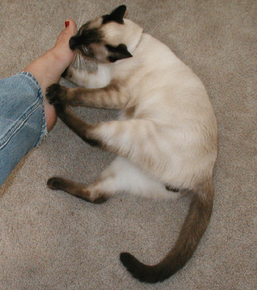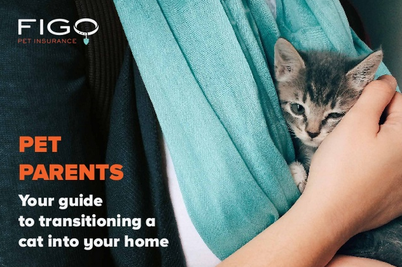 photo by marya, source: https://goo.gl/azGVRr
photo by marya, source: https://goo.gl/azGVRr When is a cat’s nip more than a nip? When it’s a bite, intentional or not.
And bites to the hand can often be serious. Studies have shown that a shocking 80% of cat bites, even those that don’t bleed, become infected. The hand is one of the worst places to get bitten because the tendons and joints are very close to the surface of the skin and are therefore harder to treat if bacteria gets into the wound. The National Institute for Health and Care Excellence (NICE) says that a cat bite can even lead to permanent disability if not treated promptly.
Cat bites are twice as likely to become infected because their sharp teeth cause deep puncture wounds, injecting bacteria further inside them. Approximately 400,000 cat bites occur every year in this country, with 66,000 of them requiring trips to the emergency room.
Three out of four bite infections are due to Pasteurella Multocida, a bacteria that’s found in a cat’s mouth, and which, if left untreated, can cause cellulitis. Most people recover from cellulitis, but if severe enough, this bacterial skin infection can spread throughout the body and become life threatening.
Infections in the hand can destroy cartilage and prevent one’s fingers from moving in the future, while a chronic infection can destroy joints and bones, and lead to amputation. The bacteria can spread to the rest of the body and cause sepsis. If one’s immune system is compromised, other rare complications include bone or heart infections and meningitis. And since rabies, tetanus and other transmittable diseases can occur if the cat is a stray or a stranger, the best protection is keeping one’s tetanus shots current.
To reduce your risk of being bitten, it’s essential to understand why cats bite in the first place – including their instincts to hunt and play. Avoid picking up or reaching for cats you don’t know. Look for signs of anxiety or stress in your own cat and pay attention to the signals. But, if you do get a bite, wash it thoroughly with mild soap and rinse it with running water. Pat it dry and apply antibiotic ointment to the wound, then cover it with a clean bandage. Place some ice (an ice pack is best) on it to reduce the swelling, put pressure on the wound, and elevate it.
See your doctor as quickly as possible. You’ll likely be put on a regimen of antibiotics and receive a tetanus shot if yours is out of date, and possibly a rabies shot if your doctor thinks it’s necessary.
If you treat the wound promptly and seek medical attention swiftly, it’s unlikely that you’ll suffer any serious complications. But then, being prepared for a bite is one part of being an informed and responsible cat owner.












 RSS Feed
RSS Feed